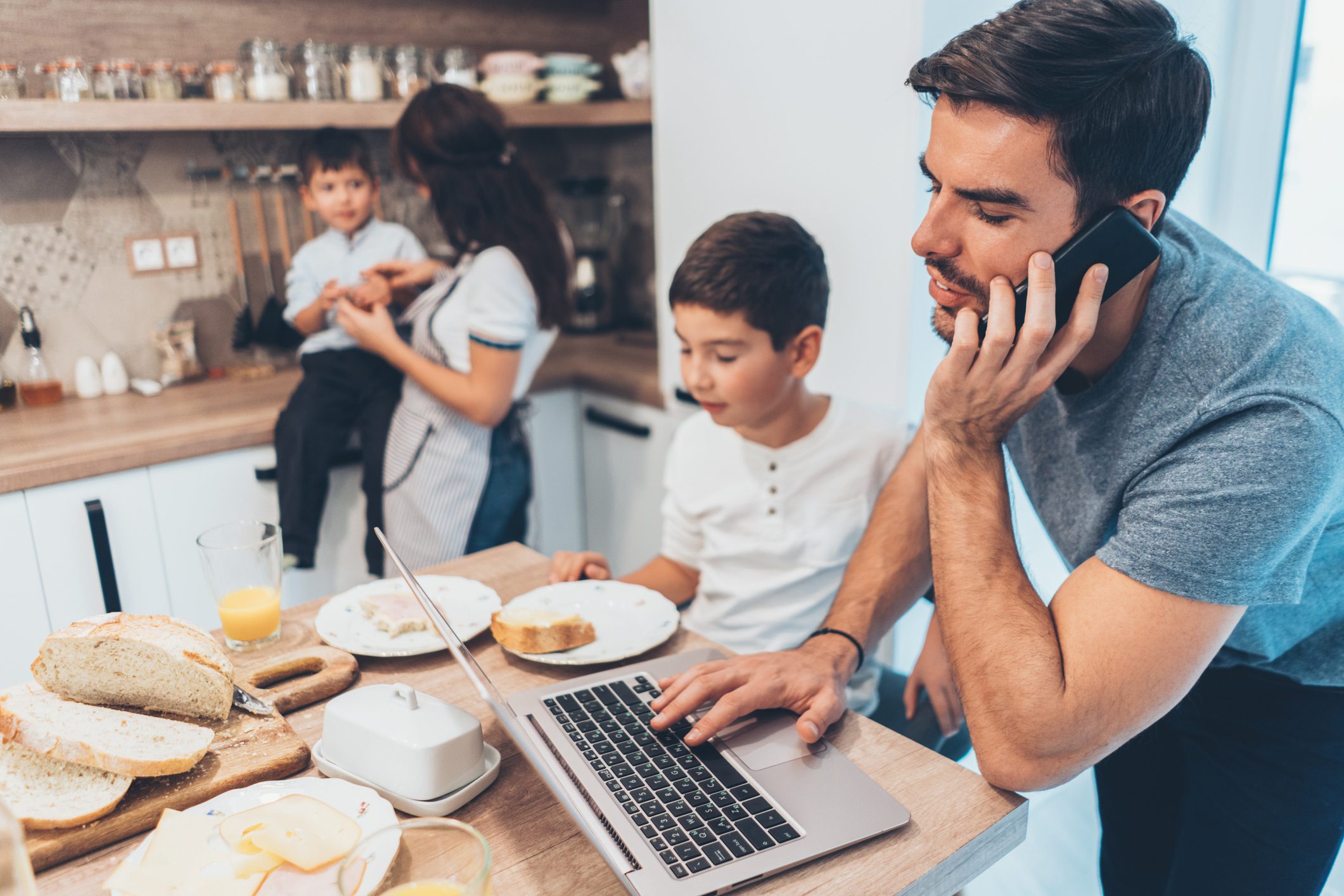I was a stay at home mom with a crying baby and a very active toddler and I hadn’t left the house in days. So one morning, I was so desperate to see the outside world and move that I strapped my screaming infant on me and pushed a stroller with my toddler while he repeatedly tried to escape. When we returned home, I was more fried than when I left and finally gave into my reality that I had only two choices 1) stop exercising 2) suck it up, do the unthinkable, the boring – use an online exercise program.
Because of my circumstances I was forced to consider a behavior I swore I would never do. But after trying a few programs, I found one that seemed slightly less boring than the others and it had short enough sessions that I could get it done during nap time so, I went for it. And you know what? It wasn’t terrible. I was exercising more regularly and noticed a shift in my mood. I was actually grateful to have some way to keep in shape. I had little ones at home for many years, so I continued this habit about 4 times a week for at least 3 years. And now I am back in the paid workforce, my kids are all school aged, and I am a card-carrying gym member again – but even before COVID hit and my gym closed, I still did workouts at home sometimes.
Behaviorists at Canvas 8 explain that whether or not a forced behavior becomes a new habit depends on three things:
1) how long someone is forced to do it
2) haw satisfied they are with the new solution and
3) frequency of habit.
In my at-home parent exercise situation, I hit all three of these factors, feeling I had no alternatives, I ended up being pretty satisfied and I did it fairly often for at least 3 years. Presto, habit change.
We are currently living in the perfect conditions for new habits and behaviors to be formed out of forced change. It’s clear that there isn’t going to be one date in the near future when COVID-19 is over and the world resumes as it was before. People are being forced to figure out how to do most things from home. And if companies take this as an opportunity to become something even better instead of what they had to become; this can be a positive habit-forming experience for consumers.
Some things may go back to the way they were eventually, but there will be behaviors that are ingrained in anyone who went through this time for years to come. Habits are being formed, lifelong behaviors are being changed. Many people who are getting over the hump of exercising online will actually like it. And once all the tech and security glitches of working from home are ironed out, many people will continue to do it even when they don’t have to because it also has lots of upsides. And while there will always be the irreplaceable benefits of in person connection, co-workers and families alike are enjoying their newfound ability to see each other when they otherwise couldn’t.
The takeaway? People are taking care of business and personal matters from home and no matter how the future unfolds, these area behaviors and habits we can expect to remain true for some time to come.
Want to read about this and other recent stay-at-home trends? Read about the remote evolution and check out our Tech Trends report.
